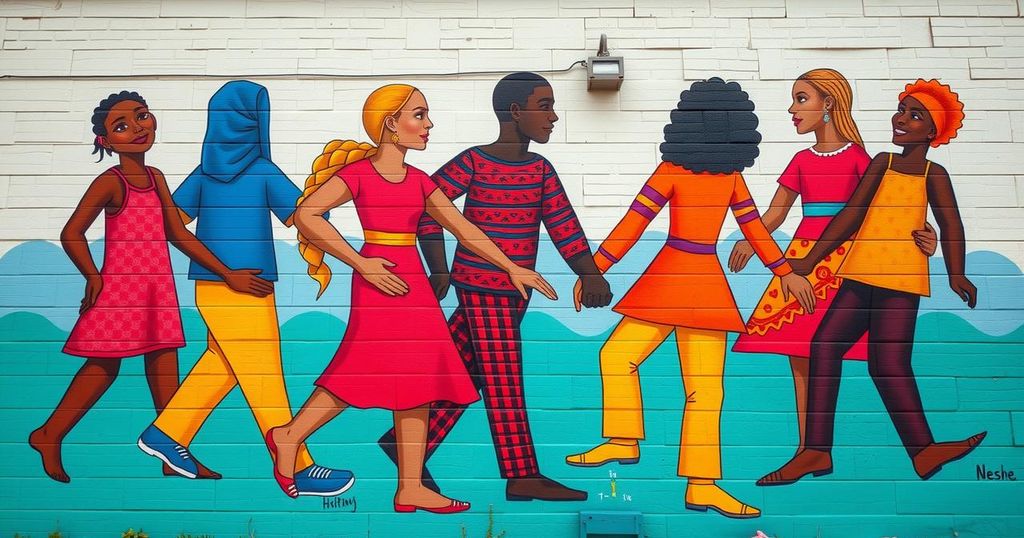World news
AFRICA, ANDREA PERDOMO - HERNANDEZ, BOSTON CITY COUNCIL, CUBA, DONALD TRUMP, LAWYERS FOR CIVIL RIGHTS, LEGAL CHALLENGES, LOUIJEUNE, MASSACHUSETTS, MIGRATION, MYANMAR, NORTH AMERICA, NPR, ORE, OREN SELLSTROM, POLITICS, RUTH, RUTHZEE LOUIJEUNE, SELLSTROM, SIERRA LEONE, SOCIAL ISSUES, SOUTH AMERICA, TRAVEL, TRUMP, U. S, VENEZUELA, WBUR
David O'Sullivan
0 Comments
New Travel Ban Raises Concerns for Massachusetts’ Haitian Community
President Trump’s travel ban now restricts entry from Haiti and 11 other countries, causing deep concern in Massachusetts’ Haitian community. The governor and legal groups express disapproval, stating that people’s family connections are under threat. Additionally, health organizations face operational challenges as local laws and judicial matters continue to unfold, highlighting broader societal impacts.
The new travel ban initiated by President Trump took effect today, creating significant concern within Massachusetts’ Haitian community. This order restricts entry for nationals of 12 countries— including Haiti, already facing political unrest. The implications of this ban are alarming as many individuals worry about not being able to reunite with family members abroad. Oren Sellstrom, legal director for Lawyers for Civil Rights, conveyed that residents are feeling “despondent” due to their restricted ability to connect with loved ones.
The administration claims this ban is a national security measure, citing issues such as terrorism and high visa overstay rates. However, critics, including Boston City Council President Ruthzee Louijeune, argue that these claims are unfounded and merely serve a “xenophobic” agenda. The effects have been immediate as the Haitian diaspora in Massachusetts, the third largest in the United States, faces these restrictions head-on. Louijeune highlighted the emotional toll by stating that “people are unsure if they should travel to visit loved ones because of this travel ban.”
The ripple effects extend beyond familial connections. Local health organizations like Partners in Health, which provides crucial health services in Haiti, are facing operational challenges. Today, hundreds of Haitian health workers who support the healthcare of a significant portion of the country’s population cannot enter the U.S. to travel to other facilities. Dr. Joia Mukherjee from Partners in Health criticized the ban, explaining that such restrictions hinder collaborative efforts necessary to fight diseases.
In a related matter, twenty-two Democratic governors, including Massachusetts’ own Gov. Maura Healey, condemned Trump’s deployment of the National Guard to address anti-ICE protests happening in Los Angeles. This group of governors issued a statement expressing that the presence of the National Guard is not only unlawful but also dangerous, predicting escalation of tensions rather than resolution. California Gov. Gavin Newsom specifically warned that deploying troops could exacerbate the situation.
Meanwhile, back in Massachusetts, the state’s MBTA Communities Law faced yet another legal challenge. Municipalities including Weston and Marshfield argued the law mandated expensive improvements to accommodate denser housing near transit. However, the lawsuit was dismissed by Plymouth Superior Court Justice Mark Gildea, who stated that any costs incurred would be considered indirect, with available grant programs for assistance.
Another judicial matter involves Shelley Joseph, a local judge previously indicted for assisting an undocumented individual evade ICE at a Newton district court. She returns to court today amid a potential disciplinary review despite an earlier agreement with the Department of Justice to dismiss felony charges without admitting wrongdoing. Joseph has referred herself to the State Commission on Judicial Conduct for evaluation, raising questions about how these allegations compare to similar cases.
Finally, on a lighter note, the Provincetown International Film Festival is set to begin this Wednesday, heralding a season filled with cinema celebrations. Movie critic Erin Trahan has compiled a guide detailing highlights from renowned local film festivals, including those in Provincetown and Nantucket, as part of a larger arts initiative set to unfold this summer.
In summary, the recent implementation of Trump’s travel ban raises serious concerns for Massachusetts’ Haitian community, affecting family ties and local organizations. Critics argue that the administration’s rationale lacks data support, suggesting an underlying agenda. Furthermore, challenges persist within the legal framework concerning housing laws and judicial conduct, making for a complex, rapidly evolving situation. As the film festival season opens, it provides a glimmer of cultural engagement amid these pressing issues.
Original Source: www.wbur.org




Post Comment